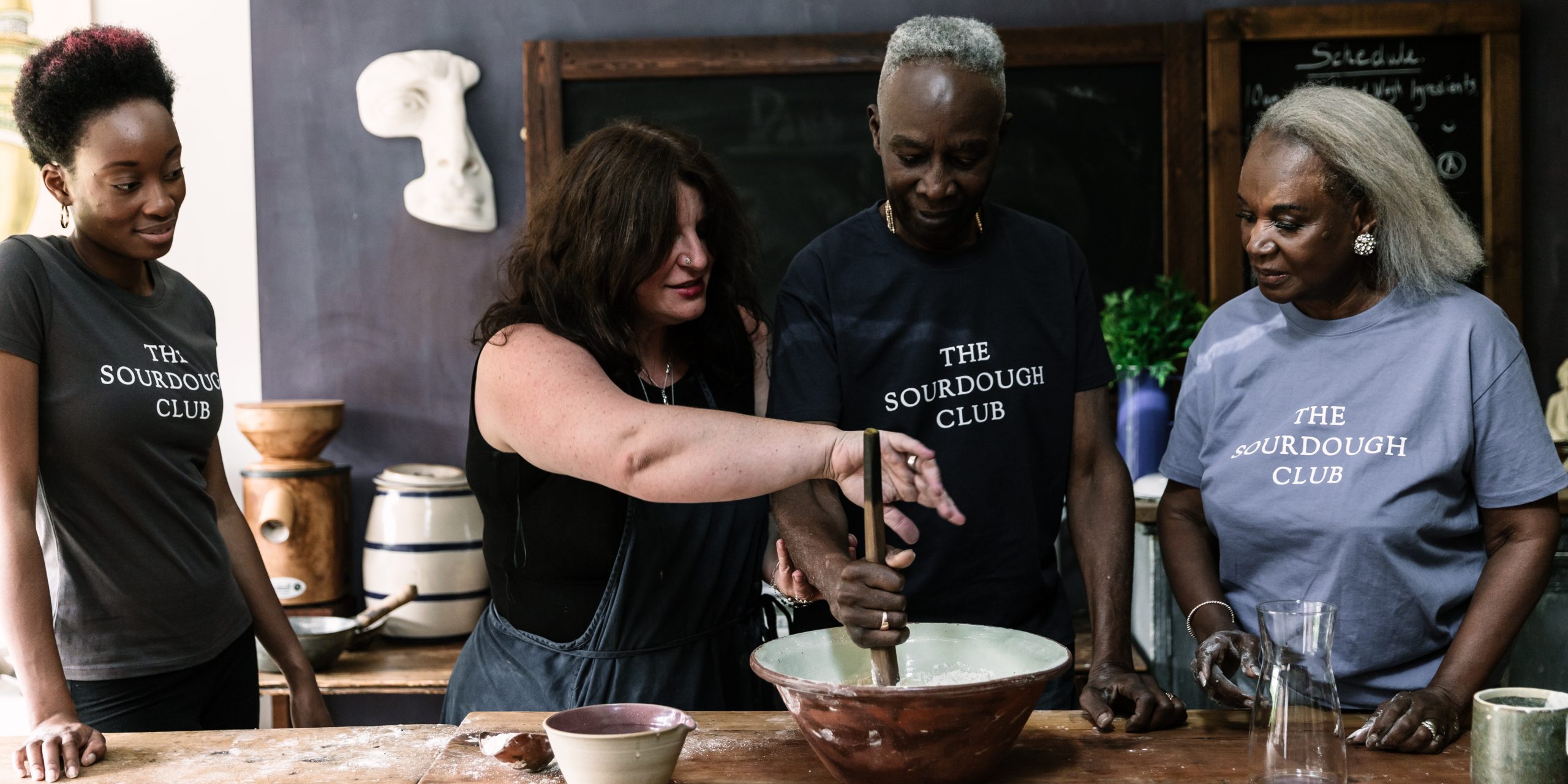Created in 2011 & Rated 5 * by the Telegraph
The Sourdough Club has been teaching Baking as Lifestyle Medicine (BALM) for over a decade, and although it operates as a distinct entity from The Sourdough School, the Club. You might say that it is a sister company, and this protects the privacy and confidentiality of the Sourdough School Graduates from the Members – this is key to maintaining the integrity of the social prescribing.
Founded originally as part of the Sourdough School, The Club empowers members to make a tangible difference in individuals’ health and well-being. It contributes to a systemic shift towards mindful eating and sustainable living, and all the recipes and lessons are underpinned by the BALM Protocol. Owned by a team consisting of NHS Doctor Dr Alexandra Davidson, Filmmaker Dan Sherratt, IT Consultant Alastair Kimbell, and Baker Vanessa Kimbell. The Sourdough Club is run as a Social Enterprise; the Club is run in accordance with the Values of The Sourdough School and The Systems Change Programme.
This unique online space provides a wealth of knowledge, spanning over 600 posts, videos, and 150 recipes. Our libraries of lessons are designed to cater to different learning levels, with support from our team of lifestyle medical professionals. We use an active learning forum and live sessions to supplement your learning experience, allowing us to be virtually in the kitchen with members.
A Social Prescription
With bread being a staple food for the majority of households, baking has a wide appeal. Prescribing BALM goes beyond the traditional clinical model offered by the NHS. It provides a platform for individuals to engage in a supportive community, learn valuable skills, and take control of their health through the transformative power of baking. BALM challenges the dominance of ultra-processed foods and educates and empowers members about the impact of ultra-processed foods and the role of the gut microbiome. BALM teaches them how to replace ultra-processed foods and refined carbohydrates to help members avoid non-communicable diseases.
BALM: Socially Prescribing Membership to The Sourdough Club
BALM principles and structure are built into the lessons and recipes n the club, including symbiotic eating and increasing probiotics and reducing sugar to improve gut health – all designed to optimise microbial equality.
- Holistic Approach: The Sourdough Club takes a holistic approach by focusing on the individual’s need for improved health and well-being. It recognizes that health is not solely determined by medical interventions but also by lifestyle choices and community engagement.
- Health Promotion and Reducing Inequalities: The club promotes health and well-being while addressing health inequalities. It provides non-clinical methods, such as baking as lifestyle medicine, to empower individuals to take control of their health and improve their overall well-being.
- Active Participation and Engagement: The club addresses barriers to engagement by providing a supportive and inclusive environment where individuals can actively participate in their own care. Through interactive forums, live sessions, and feedback opportunities, members can actively engage with the community and take an active role in their baking and well-being journey.
- Community Assets and Collaboration: The club utilizes and builds upon the local community assets in developing and delivering its services. It brings together a community of like-minded individuals, healthcare professionals, and baking experts to create a collaborative and supportive environment for learning, sharing, and growing together.
- Empowerment and Control: The Sourdough Club aims to increase people’s control over their health and lives. By providing access to knowledge, resources, and practical skills, the club empowers individuals to make informed choices about their nutrition, well-being, and baking practices. It encourages self-sufficiency and the ability to create positive changes in one’s own health.
The Sourdough Club, through its commitment to teaching baking as lifestyle medicine, fosters a sense of belonging, community engagement, and improved well-being. By offering support for mental health, addressing long-term conditions, combating loneliness and isolation, and catering to complex social needs, it serves as an important facet of community-centred practice. It contributes to improved health outcomes for its members.
Review in 2016 by The Sunday Times



